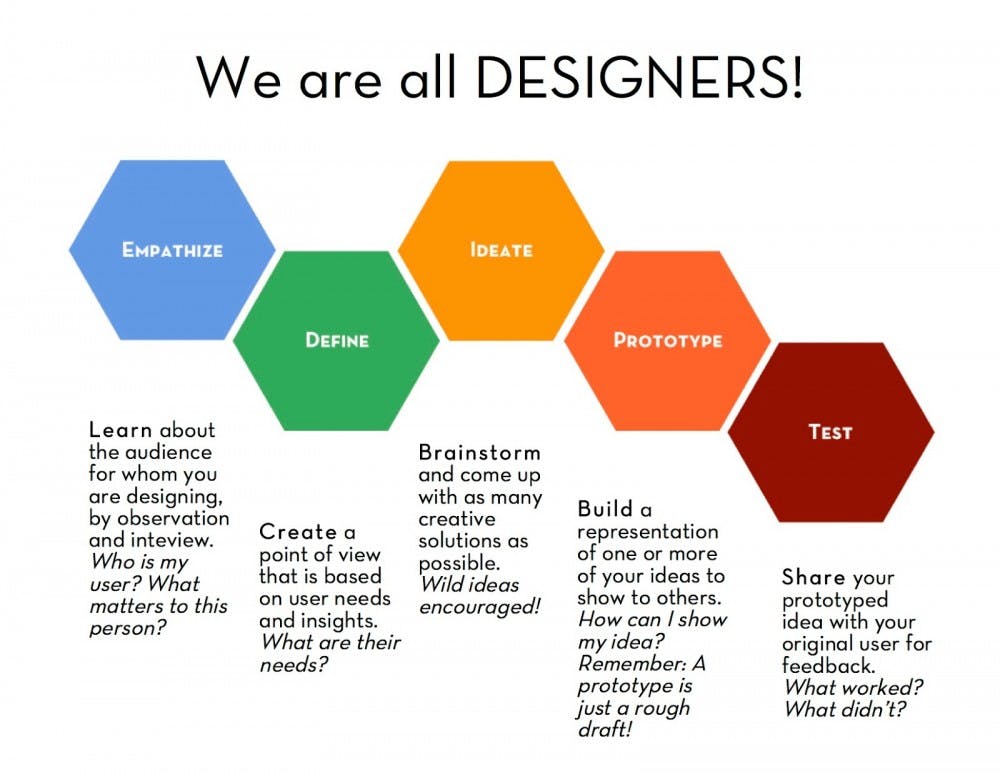While many students at Elon University worry about which courses they’ll choose during registration each semester, a new program proposes an alternative way to spend a semester. The Design Thinking Studio in Social Innovation gives students the opportunity to forgo the traditional four-class structure and spend the time collaborating with faculty and peers on a problem-solving mission to tackle social issues. Applications for the program are now open.
 The program compares itself to a “social change startup.” While descriptions of the Design Thinking Studio — which pilots in Spring 2017 — seem somewhat vague, a lot of the program’s structure depends on how students shape it.
The program compares itself to a “social change startup.” While descriptions of the Design Thinking Studio — which pilots in Spring 2017 — seem somewhat vague, a lot of the program’s structure depends on how students shape it.
“It’s a really unique and very new experience," said Rebecca Pope-Ruark, the program’s coordinator. “Students joining us for the pilot semester will be true trailblazers. There is nothing out there like our program, so in true design thinking fashion, we’ll be learning as we go and seeing what emerges from the work. Students will get to shape the experience for the next set of students and really help us grow the program."
Elon’s program embraces a new style of education formalized at Stanford University. “Design thinking" is described by the program’s website as a “process that can be implemented by anyone to understand complex problems and develop possible solutions, all while deeply caring for the people who are impacted by the problems directly.”
The goal of design thinking aims to teach students “soft skills” like writing, presenting, analyzing data and thinking creatively and collaboratively. The launch of Elon’s Design Thinking Studio hopes to give students the opportunity to acquire these skills which are attractive to employers, but rarely directly taught in classrooms.
Junior Alyx Bean, a student participating in the Design Thinking Studio this spring, offered a unique perspective on the program.
“This immersive semester offers a very unique opportunity for students to integrate their academics into real life situations,” Bean said. “It is an excellent way to develop proficiency in leadership and critical thinking skills.”
The designers of the program see it as a valuable way to put the classroom benefits of a liberal arts education to work in more of a real-life environment.
“One of the most exciting aspects of the program — in my opinion is that although students are still receiving academic credit, the program will likely feel almost nothing like taking traditional academic classes," Bean said. "And instead will offer students a glimpse into what it might be like to work in a career after graduation. It is certainly a unique model for education that focuses more on collaborative and hands-on learning approaches.”


